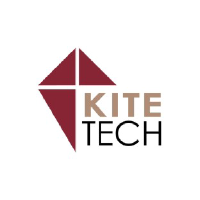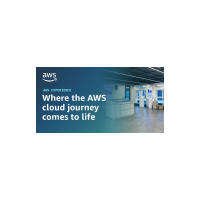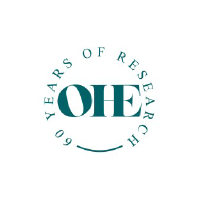
The Ultimate Directory on Office Productivity Webinars
Search our directory for upcoming webinars on Office Productivity
Previous Webinars

WEBINAR: Framing the use of AI for a Flourishing Workplace: A Taxonomy for Human Centricity in an Industrial Context
As AI becomes increasingly integrated into workplaces, concerns arise regarding its impact on employees’ well-being, productivity, and job satisfaction. This session will review how a human-centric approach to AI can ensure that technological advancements align with the broader goals of Industry 5.0 and promote a more equitable and inclusive work environment. To do this, this presentation gives a conceptual analysis of human-centric approaches to AI in the context of Industry 5.0, emphasising the democratization of the workplace and the holistic integration of technology with human well-being.Human centricity in AI should not be merely seen as adapting technologies to humans but as promoting broader objectives such as ongoing employee participation in decision-making, continuous learning, and intervention in technological processes.This presentation will focus on a taxonomy of categorises that demonstrate different approaches to human centric AI, specifically Environmental Design, Technology Accountability, and Human Infused Design. Each of these approaches to human centricity leads to particular solution pathways, including transactional, interventionist, and participatory orientations. This taxonomy serves as a tool for guiding human centric responses to AI implementation in industrial settings, contributing to the development of a more humane and equitable future of work, where technological advancements in AI support, rather than hinder, human flourishing.Speaker: Jason PridmoreJason Pridmore is a Full Professor of Human Centric AI in Society with a focus on Emerging Technologies and Social Change. He is the co-director of the Community for Learning Innovation and the co-lead of the AI strategy working group at Erasmus University Rotterdam (EUR). Jason is the coordinator of both SEISMEC, an EU funded project piloting Human Centric Industry innovation across Europe in various industrial sectors, and COALESCE, which will build a European Science Communication Competency Centre. He works in the Department of Media and Communication which is within the Erasmus School of History, Culture and Communication where he was the former Vice Dean of Education. His research interests are focused primarily on practices of the integration of digital tools within education, digital science communication, AI and workplace contexts, digital identification, the use consumer data within surveillance practices, and digital (cyber) security issues.
5/30/2025 9:00 AM

Developing and Optimizing Your Applied Epic Workflows
To deliver consistent, high-quality service to your clients, developing and optimizing your Applied Epic workflows is a must.Imagine if a team member at your agency left tomorrow. Would someone else be able to seamlessly continue their work? Without consistent guidelines for daily tasks, each person develops their own methods, leading to confusion when others need to understand their processes. This is why proper workflows in Applied Epic are essential. Gain a greater understanding of Applied Epic workflows in our upcoming webinar on April 30th at 3 pm ET, Developing and Optimizing Your Applied Epic Workflows. Lauren Roberts and Jenny Honican will detail the critical role that workflows serve in your agency. You will also learn how to tailor your workflows to suit your agency’s unique business processes to boost productivity, drive efficiencies, protect against E&O exposures, and enhance client satisfaction. Join us for this Applied Epic workflows webinar to explore:The importance of establishing standardized workflowsThe difference between workflows and proceduresKey information and instructions to include in your workflowsTools you can use to document workflowsExamples of how to implement, train, and audit for workflows Use the form on this page to register today! Not available on Wednesday, April 30th at 3 pm ET to attend live? Sign up anyway to have a copy of the recording emailed to you afterwards! Presenters: Lauren Roberts, Chief Agency Consultant; Jenny Honican, Agency Consultant.
4/30/2025 7:00 PM

Workspace Setup 101
Ready to get your workspace up and running? Join us for an informative session to learn how to build a Hive workspace from the ground up. We'll be providing a step-by-step tutorial, a live demonstration, and a Q&A session to answer any questions you may have. Sign up now to start #MovingFaster!
by Hive
11/5/2024 5:00 PM

Unleashing the power of GenAI for Intelligent Document Processing
As the world becomes increasingly digitized, organizations are seeking innovative ways to optimize their paper-based business processes and reduce costs. In this upcoming webinar, we will explore how Intelligent Document Processing (IDP) powered by Generative AI (GenAI) can unlock additional business value for a variety of industries, including lending, insurance, and healthcare.During this session, you will learn how AWS services like Amazon Bedrock, Textract, and Comprehend can help you augment and automate manual workflows that are often time-consuming for roles such as business analysts and research associates. By leveraging GenAI-powered IDP, organizations have been able to improve employee productivity and decrease costs simultaneously, accelerating their business growth and profitability.Key topics that will be covered include:• How GenAI can enhance IDP workflows to optimize paper-based processes• Use cases for leveraging GenAI to unlock additional value in lending, insurance, and healthcare• Strategies for integrating GenAI-powered IDP solutions to boost efficiency and reduce costs• Real-world examples of organizations that have successfully implemented GenAI-powered IDPDon't miss this opportunity to learn how your organization can harness the power of Generative AI and Intelligent Document Processing to drive business growth and profitability. Register now for this informative webinar.
8/15/2024 5:00 PM

National MI University presents: How to Plan and Attack the Week for Loan Officers
In the fast-paced world of loan origination, effective time management and strategic planning are crucial for success. This webinar is designed specifically for loan officers looking to:• Optimize their weekly workflow• Enhance their productivity• Achieve their sales targets consistently80% of the week should be planned before it starts. Dr. Bruce will show you how.Dr. Bruce has mentored thousands of salespeople and managers all over the world. He earned his PhD in Human Performance at age 29 and was hired as one of the youngest program directors within the Texas A&M System.In 2017, Dr. Bruce launched 90-Day Sales Manager, which quickly earned a reputation as a top coaching program for loan officers. The program includes a one-of-a-kind sales accountability software that easily integrates with most mortgage CRMs. Imagine waking up every day knowing who to contact in your database and how. As a speaker, Dr. Bruce has spoken on the largest stages in North America and is a repeat speaker at the most-respected organizations and associations in the world. Organizers love his "heart of a teacher" approach to workshops, which consistently rank him in the top 1% of post-event surveys. His content is featured on some of the largest platforms in the world for housing, banking, and finance including BreakthroughBroker with over 600,000 agents, and Million Dollar Roundtable with over 65,000 advisors worldwide.The next generation of sales training has arrived. His name is Dr. Bruce.
7/18/2024 5:00 PM

Make Consumer Product Designs less time consuming
Taking ideas to market is more challenging than ever before. Companies strain to ideate quickly and collaborate effectively while designing their products. They also struggle with turning that design package or tech pack into physical tooling and products quickly for their customers. All this leads to a longer time to market. However, it doesn’t have to be this way.Autodesk Fusion is revolutionizing the industry with accessible-to-all, easy-to-use cutting-edge technologies and tools that modernize the way engineering teams design consumer products. These tools allow companies to realize:Faster ideationBetter collaboration A smoother handoff to productionThis enables designers, engineers, and developers to focus on what they do best but execute more quickly. All of this, of course, is to gain an advantage and beat their competitors to market. Join us LIVE to hear about current industry trends and drivers from Nick Lieven, Autodesk’s industry manager for consumer products. Then, Jason Lichtman, Senior Technical Specialist will demonstrate how Fusion can help your business speed up, streamline and unify your design to manufacturing workflow. This webinar is an excellent resource for Product Design Managers, Design and Development Engineers, Product Designers, Industrial Designers, Project Engineers, Mechanical Engineers, and Developers working on consumer products.Speakers: Nick Lieven (Industry Manager Consumer Products, Autodesk) and Jason Lichtman (Sr. Technical Sales Specialist, Autodesk).
by Autodesk
6/27/2024 4:00 PM

Top 4 Localization Project Management Hacks to Double Productivity
In the fast-paced world of translation and localization, effective project management is the key to delivering high-quality work on time and within budget.Join our exclusive webinar, “Top 4 Localization Project Management Hacks to Double Productivity,” where we reveal the secrets to streamlining and automating your workflow, mitigating risks, and enhancing communication across linguistic and cultural boundaries. Discover how to:Successfully manage your localization project planning, from gathering requirements to sketching out workflows and managing deadlines with built-in buffers.Get the most from your supply chain by easily tracking quality scores, delivery times, availability, and response time so you can prioritize top performers.Leverage technology and automation to streamline your vendor management process, ensuring quality and reliability while maintaining strong relationships.This session is tailored for localization project managers looking to boost their efficiency and stand out in the competitive landscape of language services. The session will equip you with practical hacks to double your productivity and deliver outstanding results. Register today to take your localization project management skills to the next level.Speaker: Olga Krzyżanowska (Implementation Team Leader, XTM)
6/26/2024 2:00 PM

Supercharge Talent Optimization with Machine Learning and Skills Cloud
Are you managing talent in Workday HCM? Have you taken it to the next level with Talent Optimization, powered by Machine Learning (ML) and Skills Cloud? Are you ready to increase productivity of your workforce with personalized experiences resulting in greater engagement for those moments that matter? This virtual session covers how Workday Talent Optimization with Employee Experience - Help and Journeys - supports every person on their individual path, using ML to provide relevant insights, recommendations, and assistance along your career journey.Join fellow Workday customers where we will review the basics of Skills Cloud and Talent Optimization, and how your career experiences can be curated, individually, in real time. Learn how our customers are achieving higher levels of engagement by adding Workday Help and Journeys to their Talent Optimization subscription to provide you with a deeper understanding of this topic and its important relationship to talent management.Session Details:Maximize Your Investment: Understand how Workday Talent Optimization is your foundation for a skills-based talent strategy.Understand Workday Employee Experience: See how Workday Help and Journeys are used with our Talent Management platform to deliver tailored experiences.See for Yourself: Take a look with us at Workday’s rich foundation and what it can do for your talent landscape and change the nature of work for your organization
by Workday
6/11/2024 5:00 PM

Efficiency and Labour Productivity of Primary Care in England
The Office of Health Economics (OHE) has conducted a multi-year research programme funded by the Health Foundation on the efficiency of general practices in England and the determinants of labour productivity. This free-to-attend webinar will cover: - Why efficiency and productivity are key for primary care in England and what we know so far - How we propose to improve the measurement of primary care efficiency - An outlook on the labour productivity and efficiency patterns of general practices in England
4/23/2024 1:00 PM

Beyond Microsoft Outlook: OneNote, OneDrive, and Teams for Enhanced Project/Team Management and Collaboration
In this course by Randy Dean, MBA, “The E-mail Sanity Expert®”, you will gain critical tips and strategies on how to utilize these most-essential new 365 tools as part of your productivity and team management/collaboration suite. With OneNote, you will learn how to not only “clear your mind” by having an “anytime, anywhere” creative notepad, but you will also learn advanced strategies for making those same notes team collaboration and coordination tools, as well as tools for direct management and coordination between supervisors and staff.
by Randall Dean
2/1/2024 6:00 PM